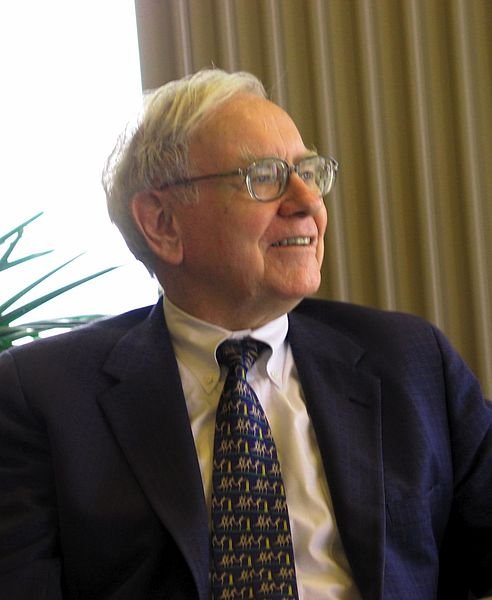Warren Buffet
One Foot Bars

Warren Edward Buffett (born August 30, 1930) is an American business magnate, investor, and philanthropist. He is considered by some to be one of the most successful investors in the world, and as of March 2017 is the second wealthiest person in the United States, and the fourth wealthiest in the world, with a total net worth of $73.3 billion.
Source

Source
Ok, so this guy is super rich. Considered by some to be one of the most successful investor in the world. There are a lot of people who happily agree with that statement.
When news is leaked that this guy has invested in something people literally rush in droves to put their money into it also.
He's basically the icon of investing.
He had something very simply yet enormously profound to say about life and business.
Whether you know it yet or not, we are the ones in charge of our lives.
We make the rules!
So why make them hard?
Why believe that for something to be very rewarding it has to be difficult also?
There is no reason to do that to ourselves. Things can be rewarding and easy if that is how we shape our lives.
Each time you accomplish something you get a feeling of accomplishment.

Source
Each time you feel that feeling it drives you to want to do more.
The more time between accomplishments the less you are likely to attempt to accomplish something else.
The less time, the more likely.
Jumping a 7 foot bar would feel very rewarding but will take a ton of time to master and will lengthen the time spent between accomplishments.
Stepping over a 1 foot bar over and over, though less rewarding each time, could produce that feeling of accomplishment nearly continually.
Thus making you want to step over it again, again and again.
Lets look at it from a financial standpoint.
If you develop a plan to make $100,000 that will bring the money in one fell swoop, yet will take a ton of effort and time, you will feel quite rewarded once it comes.

Source
However, you may also get discouraged along the way.
You may quit, or become distracted.
You may start to feel that it is just to far out of reach.
Now let's say you want to make $100,000 and your plan is to make $10 each time.
Well, each time you get $10 you will see that $10, hold it and feel rewarded. Each $10 you receive will add to the pile and you will visually see yourself growing closer and closer to the main goal of $100,000.

Source
Each time you will be re-inspired to make the next $10 and so on until your goal is achieved.
The idea here is to set smaller goals on the way to achieving larger ones.
If you want to lose 50 pounds it will not happen overnight.
Expecting it to is unrealistic and will likely leave you simply not trying at all.
If your goal each time were one or two pounds you would be re-inspired each time you lost that 1-2 pounds and push to lose the next 1-2 until eventually you have lost the whole 50.

Source
This produces a consistent flow of work, reward, work, reward, that will continue to push you further.
So if you have a goal that is a little or a lot out of reach, break it into smaller and more manageable goals (while still focusing on the larger goal) and you will notice greater results with less effort.
Mastering this can make seemingly impossible tasks look quite easy to those watching you do them as well.
The people around you will be left wondering how on earth you've done these things, as many do with Warren Buffet.
When they ask you how you've done this, one thing you will certainly be able to answer them with will be:
Thanks for reading.
Michael David
